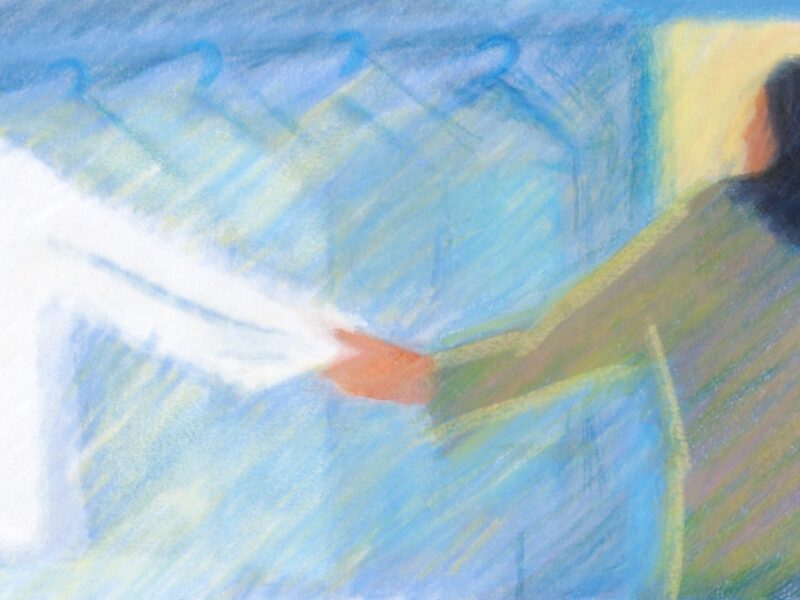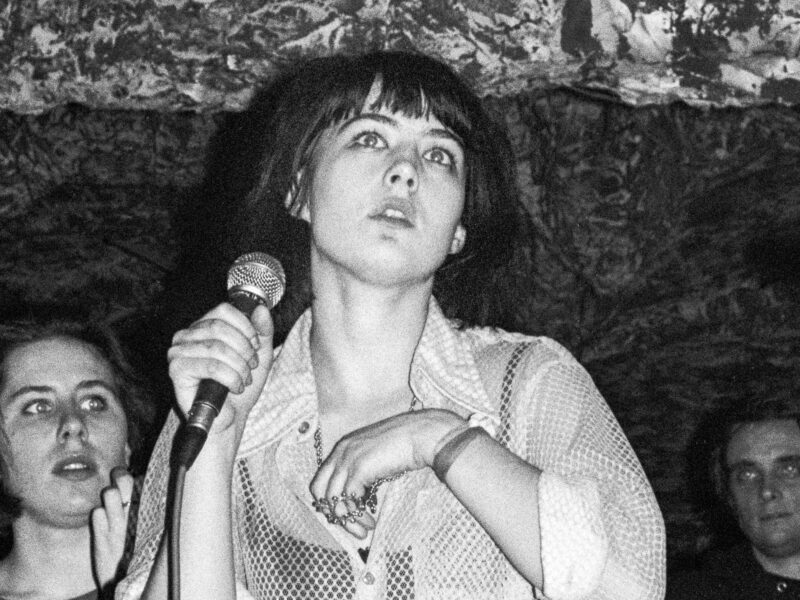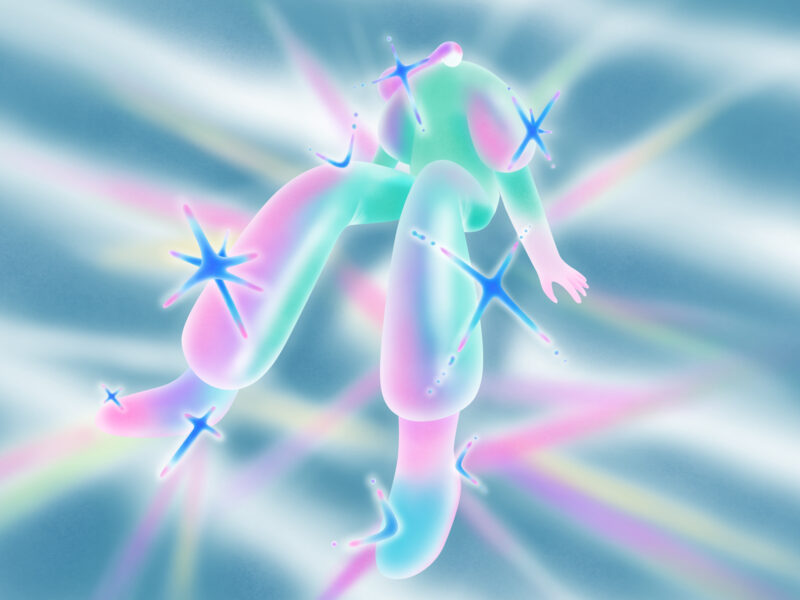The combination of jokes and storytelling has become a potent weapon in the culture wars
With “Nanette,” her critically acclaimed 2018 Netflix special, Australian comedian Hannah Gadsby inspired an international conversation about the purpose of comedy. During her hour-long monologue, filmed in front of a rapt audience at the Sydney Opera House, Gadsby challenges the idea that comedy is an effective means of dealing with controversial issues. In theory, she explains, comedy creates a connection through laughter; but in practice, it undermines serious discussions and perpetuates toxic norms.
Gadsby grew up lesbian and gender non-conforming in ultra-conservative Tasmania, where homosexuality was legalized only in 1997. Humor was her defence mechanism against fear and shame, but it also kept her from thriving. She has come to realize, she explains in “Nanette,” that the price of self-deprecating humor is her dignity. “I put myself down in order to seek permission to speak,” she says.
Storytelling succeeds where jokes fail, says Gadsby. They can provide answers by integrating marginalized voices in a three-dimensional way that is not just a setup and a punchline, but an arc with a beginning, a middle, and an end. “What I would have done,” she said, “to have heard a story like mine, to feel less alone, to feel connected.” She adds: “This is bigger than homosexuality; this is about how we conduct debate in public about sensitive things.”
Comedy and storytelling
Several comedians and writers have embraced the challenge of creating films and television series that combine jokes and storytelling to catalyze and reflect new norms.
“Booksmart,” a hilarious and charming new film directed by Olivia Wilde, brings marginalized voices into the mainstream and normalizes them. The film replaces the conventional teen rom-com device of shy boy and awkward girl with two socially awkward teenage girls, best friends, one of whom is straight and the other a lesbian. The girls don’t bother to correct the impression of their performatively liberal parents, who believe the girls are romantically involved. On the eve of their high school graduation, they decide to misbehave radically for the first time in their bookish lives, which leads to a series of hilarious misadventures. The girls are precocious and they live in Los Angeles, but they are highly relatable and possess an age-appropriate innocence that transcends their coastal elite status.
“Crazy Ex-Girlfriend,” an ingenious comedy that has as its protagonist a woman who is obsessed with a man she dated as a teenager, explores mental health seriously and unflinchingly rather than playing it for laughs. It works because the plots are hilarious and the characters compelling. The show manages to combine brilliantly written comedy and story development with a serious agenda — and on mainstream cable television.
Premium cable channels have also been taking some chances with programs about the lives of social groups that were all-but unknown on mainstream television just a few years ago. HBO’s “Insecure,” for example, presents the lives of 20-something middle class African-American women. Star Issa Rae mines her own life in the series, set in Los Angeles. She works for a non-profit while Molly, her best friend since they were undergraduates at Stanford, is a corporate attorney. The series follows Issa’s foundering relationship with a live-in boyfriend, Molly’s awkward dating life, their career hurdles, and all the other universal agonies of fumbling toward adulthood — but presented through a lens that focuses on the unique aspects of the African-American experience in a white-majority society. If the series were about white women, “Insecure” would be a cliché. But because it’s about black women whose life experiences are as recognizable as that of Abbi Jacobson and Ilana Glazer of “Broad City,” it is revolutionary.
“Crashing,” by and with Pete Holmes, and also on HBO, takes on comedy. Holmes’s character, based on a version of himself, is a white, Christian comedian pursuing his career in New York City’s less-than-earnest comedy scene. In this context, Holmes is the marginal one. Viewers gain a visceral understanding that there is no such thing as “normal,” and that diversity is what makes us human.
As he struggles to make it, Holmes finds himself crashing on the couches of comedians who have achieved a degree of fame and financial success; this is a plot device that brings cameo appearances by pretty much everyone in the business — a true comedy nerd’s delight. “Crashing,” has taken on serious issues, such as addiction — with an amazing performance by veteran comic Artie Lange, who has struggled with addiction for decades. The series includes episodes with angry male comics who refuse to adapt to evolving social mores, as well as new female and non-white voices. “Crashing” was not renewed for a fourth season, which is a real loss for the broader conversation about comedy, especially about its changing landscape. The show upends the notion that sensitivity to new voices and old tropes will spell an end to “funny.” Instead it challenges the older guard to be more creative and opens the conversation to those that have been marginalized, which is a lot of very funny people.
But scripted comedy and the traditional comedy set do pose limitations that underscore Hannah Gadsby’s central points. The characters are ultimately fictional, even if they are relatable and represent more diversity. They reflect real concerns, but they they don’t live beyond the page on which they are written.
Unscripted and stand-up comedy
One of the reasons the stand-up comic seems to offer truth, is that she stands there as herself, connecting with her audience through a combination of vulnerability and sharp insights. Comics tend to be quite open about their personal struggles and often draw on them for material. But the stand-up set is usually a well-honed combination of jokes and short stories. With “Nanette,” Hannah Gadsby shows that comedians now have a much broader range of options in which they can present their work.
Comedy seems to have found its value as storytelling. “Nanette” is one example of this form, but podcasts seem to be the perfect storytelling platform.
Comedy and the podcast
Podcasting has helped the golden age of comedy to flourish. It also offers perhaps the most intimate ways of experiencing entertainment, as a one-on-one experience between the listener and the podcaster. In the case of podcasts hosted by people who allow the listener into their personal lives, a long-lasting bond is created.
“My Favorite Murder,” a true-crime podcast hosted by Karen Kilgariff, a veteran comic and writer, and Georgia Hardstark, a Cooking Channel personality and food writer, embodies the way in which comedy can be a valuable storyteller, a medium for serious conversations, and a means to connect. They achieved this unintentionally, as a result of tapping into the zeitgeist.
The format is simple: in each episode, the hosts take turns telling the story of their “favorite murder” – stories that have fascinated them and fed their obsession with true crime, ranging from Jon Benet Ramsey to the Golden State Killer. The retellings are not especially well-researched, with Hardstark and Kilgariff openly relying on Wikipedia, or episodes of true crime shows. The hosts also often mispronounce places and names, and sometimes have a tenuous grasp of history or basic geography. It is their very frank awareness of their ignorance, and their openness to being challenged, that taps into the vulnerability and empathy through which they connect — both to one another, and to their audience.
Kilgariff and Hardstark have also arrived at their podcast with baggage they are willing to unpack. The two discuss their past substance abuse, eating disorders, failure to thrive in conventional settings (neither has a college degree), dysfunctional relationships, watching a parent succumb to Alzheimers, and ultimately, the way both have achieved growth through years of therapy. And it is clear they are sharing themselves in a way that they think will be valuable to others.
Since its launch in 2016, the podcast has soared in the charts, sold out live shows nationally and internationally, and has a cult following of fellow “Murderinos.” Their fans are mostly women, who make up the vast majority of true crime fans. There are as many true crime podcasts as there are comedy podcasts, but with this combination, their talent and chemistry, and ability to connect through their own stories, the duo have captured a perfect medium for an audience that seemed urgently hungry for it. Their new memoir, “Stay Sexy & Don’t Get Murdered,” is an even more candid extension of the themes they have spoken about on the show. And they have bared themselves even more-so, to everyone’s benefit.
The podcast has received thousands of emails over the years with fans expressing deeply personal reasons for feeling connected to and by the show. Between full episodes, MFM releases mini-episodes, with the hosts reading out a select few “Hometown Murders” sent in by listeners (really any true crime story that the listener has some kind of personal connection to). Almost invariably, the listener explains at the end of the show why it touched her, and expresses gratitude.
One listener, who is a sex worker, told the hosts that they are “angels for trying to contribute to the [conversation around] the frequent mockery and stereotyping of violence against sex workers;” another wrote, after telling a story about her dad’s role in helping end a hostage situation, that “I am so grateful for the way you ladies talk and are so open about mental illnesses, it was (my dad’s) own bipolar disorder that led to the end of his life and I’ve always felt a stigma around his disease and death like it was an anomaly and isolate thing when really it’s everywhere and I appreciate your willingness to start an honest conversation;” and one woman wrote in to tell a story and thank them for, “helping this junior lawyer with long hours and unbelievable professional self-doubt.” In the interest of total disclosure, I once wrote them myself with a hometown story and thanked them for sharing themselves in the way they do. They were my loyal and constant companions who kept me feeling connected to the world when I was laid off from my job.
Comedy has certainly grown to include more storytelling, and deeper excavations than throwaway punchlines. It helps that comedians often come equipped with a wide array of dysfunctions they are happy to discuss. Hannah Gadsby was right to question the value of comedy if it was used only as a means of defusing tension. But the medium seems to be expanding. It is becoming an avenue for serious conversations, and for a wider variety of us to connect. Hannah Gadsby is returning this summer with a new special, “Douglas, we may well get a new verdict from her as well. It will be on Netflix in 2020.



